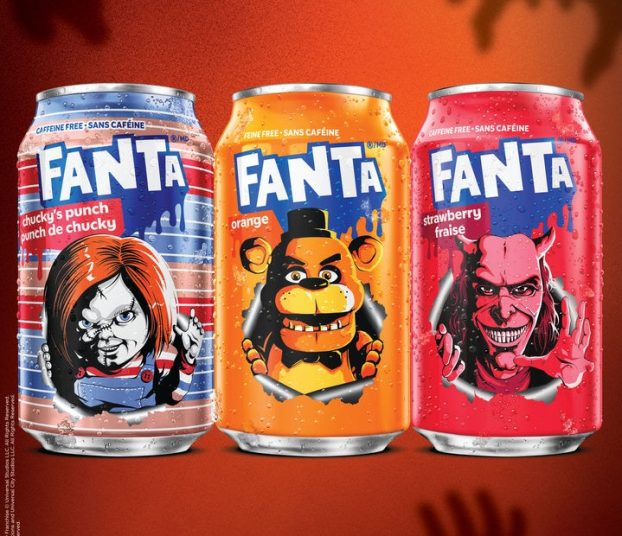Campaign deconstructs Canuck icons
Dissected beavers and maple leaves are among the images being used to promote the newly revamped version of Maclean’s magazine.
The mag hopes to draw attention to its new youthful, provocative image with a controversial print, TV and radio campaign that launched nationally in late June in time for the first renovated issue to hit shelves June 24. The revised mag features a new logo, an updated layout and more essays and one-on-one interviews.
One ad shows a textbook-style diagram of a dissected beaver. Three others also show cross-sections of Canadian icons – a maple leaf, the Canada Arm and a female hockey player. The tagline: ‘Maclean’s. Canada. In depth.’
‘Everyone regards Maclean’s as a Canadian icon so we wanted to tell people they should be looking at it in a brand new way,’ says Chris Staples, partner at Vancouver-based Rethink, which is the agency behind the campaign.
‘These images illustrate the point that Maclean’s takes a deeper look at Canadian issues.’
A single TV spot is also set to launch on specialty channels in early July. The spot opens with a parody of the headline news, with the announcer giving very little detail. The camera then shifts to a magazine article covering the entire screen, showing the same story in considerably more depth.
Credits
Client: Maclean’s
Agency: Rethink
Writer: Chris Staples
Art Director: Ian Grais
Creative Directors:
Ian Grais/Chris Staples
Illustrator: Jacques Perrault
Account Manager: Ailsa Brown
Production Manager: Chris Raedcher
Sushi restaurant feeds off soccer-mania
As World Cup fever draws to a close, a small Japanese restaurant in the heart of Toronto’s Little Italy continues to benefit from its own brand of soccer-mania with an innovative multi-media campaign.
Launched in mid-June, the campaign created by Grey Worldwide in Toronto consists of a combination of outdoor, print and in-restaurant signage, to attract soccer fans to the College Street restaurant, Tempo Sushi.
One ad shows pieces of sushi fitted together in the shape of a soccer ball. The second features sushi lined up like the players on a pitch while the third shows an image of a soccer boot with small pieces of sushi representing the boot studs. Each ad gives the tagline: ‘Proud supporter of Japan 2002 World Cup. Tempo Sushi.’
In addition to billboard posters along College Street, the ads are also featured on tent cards, washroom posters and menu inserts within the restaurant, and in magazines including Eye.
‘You don’t see a lot of World Cup advertising in Canada,’ says Sam Cerullo, art director at Grey. ‘Little Italy is a soccer haven so it seemed like a great opportunity to combine the World Cup and sushi themes to attract the soccer fans and drive traffic to the restaurant.
‘It started as a single poster for the restaurant, and then just mushroomed,’ he adds. As the World Cup took place in Japan (and South Korea), Cerullo hopes the campaign positioned the Japanese restaurant as an appropriate evening meeting place for soccer fans. It may continue to run for a week or so after the World Cup, he says, as soccer fever winds down.
The campaign is being supported by the Japanese beer brand, Asahi, which is sold in the restaurant.
Credits
Client: Tempo Sushi
Agency: Grey Worldwide Toronto
Creative Director: Marc Stoiber
Art Director: Sam Cerullo
Copywriter: Sam Cerullo
Photographer: Frank Sienkiewicz
Print Production: Neem Ba Ha
Winter scenes promote Canadian jewels
Icy images from the frozen north have been used to position Ekati Diamonds as providing the quality diamond of choice for Canadians.
In a print campaign created by Wasserman & Partners in Vancouver, pieces of jewelry are featured in icy surroundings to represent their origin, the Ekati mine, which opened in Canada’s Northwest Territories in 1998.
Using a similar formula to Wasserman’s earlier Ekati ads, ‘Pure Ice’ shows a pair of diamond earrings lying on a thin sheet of ice surrounded by icicles, and a second ad, ‘Melt Heart,’ shows a ring sitting on an iceberg. Each ad features the tagline: ‘Ekati diamonds. True north. True love. True Canadian diamonds.’
A line about the origin of the jewels is also included together with a frozen maple leaf image (which Wasserman created as Ekati’s logo in 1999 shortly after winning the account). The ads are also branded by retailers that stock the products.
‘We wanted to differentiate these diamonds from others around the world by drawing attention to their Canadian origin,’ says Gary Grafton, account director at Wasserman.
The first two ads started running in magazines including Toronto Life and Vancouver Life in late June, and will be followed by further print executions later this summer. An outdoor element may be added in due course.
Credits
Client: Ekati Diamonds
Agency: Wasserman & Partners
Creative Directors:
Alvin Wasserman and Kai Clemen
Art Director: Kai Clemen
Writer: Alvin Wasserman
Account Director: Gary Grafton
Strategic Supervisor: Jennifer Derbyshire
Production: Shelley Stevens
Photography: John Sinale and Jan Habal
Sharpe Blackmore stamps out ageism
‘Nobody has a shelf life.’ This is the message of a new public awareness campaign to counteract discrimination against older people.
The first phase of ads, created by Sharpe Blackmore in Toronto for the Ontario Human Rights Commission, targets the issues of employment and transit service as they affect older people.
Two posters, which launched across Ontario in various public and private sector workplace environments in mid-June, show photos of older people with grocery store-style stickers on their foreheads stating a ‘best before’ age, together with the tagline: ‘Nobody has a shelf life. Stop age discrimination now. It’s illegal, and it’s just plain wrong.’
Both ads have also been distributed to 300 publications including weeklies, dailies and periodicals.
A second phase of the campaign will launch in the fall, consisting of two similar posters that focus on the issues of health care and housing.
The ads were launched by the Ontario Human Rights Commission in partnership with the Canadian Association of Retired Persons, to complement the recent release of the commission’s policy document on age discrimination.
Credits:
Client: Ontario Human Rights Commission
Agency: Sharpe Blackmore
Creative Director: Tony Miller
Art Director: Stacey Hill
Writer: Chris Davies
Photographer: Heip View
Account Managers:
Michelle DeClair and Wendy Robertson





















